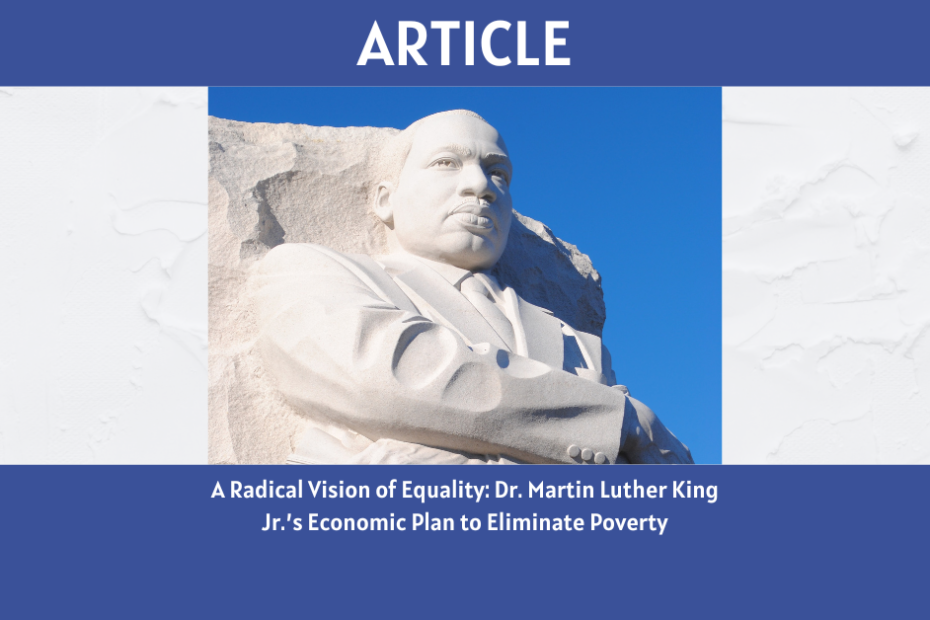A Radical Vision of Equality: Dr. Martin Luther King Jr.’s Economic Plan to Eliminate Poverty
There are few figures in 20th century American history more roundly beloved than Dr. Martin Luther King, Jr – and, as an unfortunate consequence, few whose legacies have faced more colossal efforts at appropriation. This is ironic, since of course in his own lifetime Dr King was among the most polarizing figures in American politics. This transformation has been facilitated in no small part by the snipping of his most broadly agreeable remarks and views and a great deal of ignorance about Dr King’s sophisticated – but more controversial – economic views.
Economics were fundamental to Dr King’s career, and the ultimate goal of his economic thought was the elimination of poverty. It was to this end that King promoted the Freedom Budget of All Americans, which had as its goal the “determination that in this, the richest and most productive society ever known to man, the scourge of poverty can and must be abolished—not in some distant future, not in this generation, but within the next ten years!” King endorsed the budget and threw the support of the Southern Christian Leadership Council behind it.

